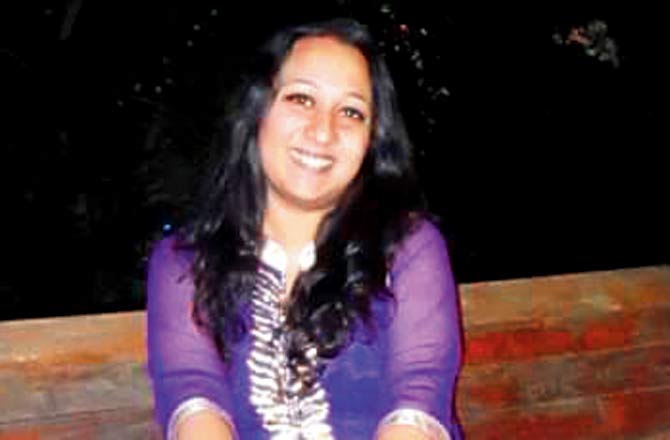Aussie maverick cricketer Glenn Maxwell's recent call for an indefinite break to focus on his mental health was lauded by Virat Kohli. Here's why taking time off from work could be the best thing for your emotional well-being

Virat Kohli and Glenn Maxwell. (Pic/AFP)
The blue-eyed boy of one of the world's most competitive teams in cricket walking away from the sport was the last thing fans expected from Glenn Maxwell; but that's exactly what the 31-year-old did when he announced that he would be taking a break to focus on his mental well-being.
ADVERTISEMENT
Maxwell's decision has been widely lauded by players from around the world, including Indian captain Virat Kohli, who recalled his struggles with coming to terms with his less-than-par performance during the 2014 England tour. Speaking to the press on the eve of the first test against Bangladesh in Indore, Kohli said, "…you reach a tipping point at some stage [when] you need some time away from the game. [It's] not to say that you give up, but just to gain more clarity."
In a country where more than 89 per cent of the population (according to a survey by Cigna TTK Health Insurance, 2018) is stressed, and work is one of the key reasons, taking time off to focus on mental health could be the way forward, experts say. And yet, a highly competitive job market and inflation can make a sabbatical seem like a luxury that few can afford. Those who have taken the plunge tell us what it takes and how taking a well-deserved break has positively impacted their professional journeys.
Forget what society says, it's okay to freelance
Earlier this year, my employer informed me that our organisation was issuing pay cuts to all employees. My job was extremely demanding. Further, I spent nearly five hours on my daily commute. I was frustrated and dissatisfied. The reduced pay was the final straw — I decided to quit my job and, instead of immediately looking for an alternative, spent the time focusing on self-care. I realised that the stress had affected me, mentally and emotionally. I was always agitated and would often lash out at my family. Once I went on a break, I decided to explore other skills and activities that I never had the opportunity to. I discovered that I was a skilled painter; I became a voracious reader, and am now learning yoga. I also found my spiritual side.

To support my expenses, I take up freelance content writing projects that I can pursue at my own pace. Thus, it's possible to support myself financially, without letting work stress get to me. I've found that society, in general, tends to treat those who aren't employed full-time with some disdain. This idea of working is more of a societal custom than an actual need. Today, it's cool to be busy all the time. And hence, stressed. These traits are associated with importance. Of course, not having a regular paycheck does come with limitations — for example, I must curtail my expenses and not buy anything new. This exercise, however, has taught me to be more content with myself. I look forward to going back to work with a renewed sense of purpose and fulfilment.
Pinky Danani, 38, marketing professional
Leave before a breakdown
In 2015, I took my first break from the corporate grind. I was working as a senior Flash developer at a prominent advertising agency. In November that year, I decided to break my recurring account and use the savings to take a solo trip to Thailand. I spent a few more months with my family in Kolkata. The reason why I took a break is because I was frustrated with the constant negativity and politics that I had to contend with at my workplace. This was taking a serious toll on my creativity. I felt stifled and frustrated. I was diagnosed with anxiety and depression for which I was prescribed medication and counselling.

Six months later, I came back to Mumbai, ready to face the grind and hustle with a new energy and purpose. I also switched my career to PR and was doing quite well on both personal and professional fronts. I have since changed careers again and am currently working as a make-up artist. Today, I am on my second sabbatical and have moved to Goa. During this break, I have consciously decided to focus on my own happiness.
Activities such as meditation, chanting, praying and connecting with those with a different mindset and background recharge me emotionally. I know that I will bounce back the day I feel better. As an introvert, I find that I can best reboot my mind with my own energy when I am alone. To support myself during my break, I am using my savings. I am also taking up the occasional bridal make-up orders in Goa. As a result, I can sustain myself financially while also recovering
emotionally.
Natasha Nyss, 36, make-up artist
Rediscover your independence
I run a bakery for pets and work from home as a full-time entrepreneur. Last year, however, I felt that my job was no longer giving me joy. I had begun to slack and even turned down orders, which I had never done before. I also didn't have a large social circle and was almost completely reliant on my husband, a naval officer, for emotional support. But he was overseas which made me lonely. I came close to quitting my business.

I had gone into a shell. I took a break and planned my first solo trip to the Andaman Islands. This experience completely changed me — I am an introvert and anxious. Although I was very reluctant, I pushed myself to interact with new people. I was surprised to learn that I was good at organising. This gave me a renewed perspective to work. I have plenty of new ideas that I can't wait to implement. Most importantly, taking a break helped me to rediscover my independence.
Shweta Rao, 35, entrepreneur
Before you quit
. Build a strong network across industries before you quit. It will serve you well when you are ready to restart.
. Rack up additional skills during your break. This will make you ready for further employability.
. Consider working on a part-time project or business venture. Having something beyond work — a personal website, an e-commerce store, an app or an influencer business — can become a source of both income and achievement when you exit.

Nidhika Bahl
The warning signs
Burnout is a state of physical and emotional exhaustion that can arise from long-term stress or when you work in a physically or emotionally draining role for a long time. A career break may be in order if you experience the following symptoms, says life coach Nidhika Bahl.
. A negative and critical attitude to work
. Dreading going to work and wanting to leave once you're there
. Low energy and little interest in your work
. Poor sleep
. Frequent absenteeism
. Feelings of emptiness
. Physical complaints such as headaches, malaise or backaches
. Easily irritated by team members or clients
. Feeling like your work doesn't have meaning or make a difference
. Pulling away emotionally from your colleagues or clients
. Feeling that your work and contribution are unrecognised
. Blaming others for your mistakes
. Thoughts of quitting work or changing roles
Catch up on all the latest Mumbai news, crime news, current affairs, and also a complete guide on Mumbai from food to things to do and events across the city here. Also download the new mid-day Android and iOS apps to get latest updates
 Subscribe today by clicking the link and stay updated with the latest news!" Click here!
Subscribe today by clicking the link and stay updated with the latest news!" Click here!






